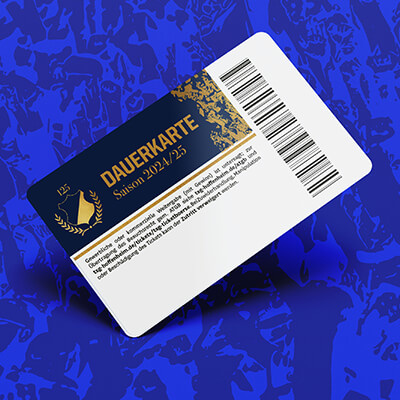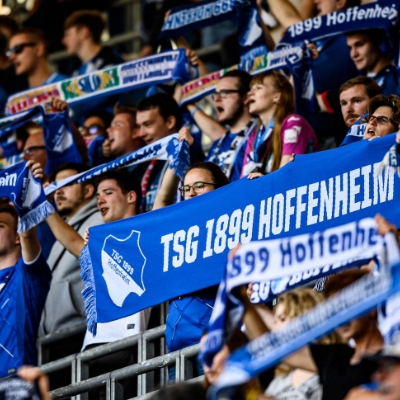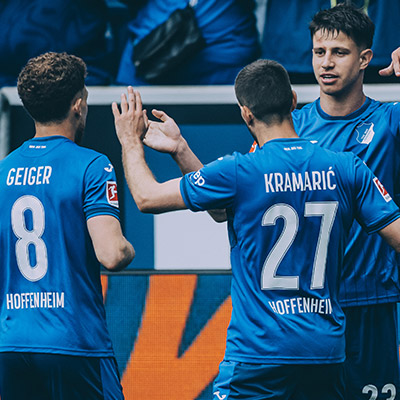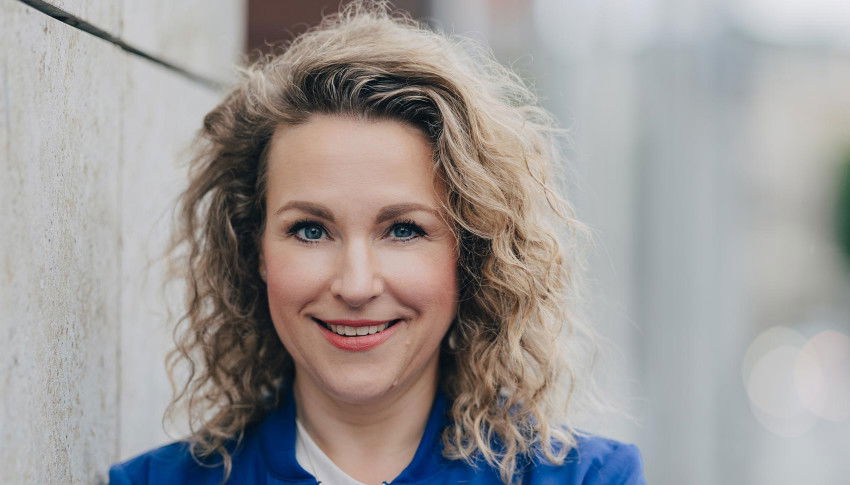Successful premiere for TSG Congress
It was the guiding star of the day. A legendary line from basketball superstar Michael Jordan was emblazoned on the screen: "I've failed over and over and over again in my life and that is why I succeed." Failure as an opportunity, as a necessary path to success. It's about pressure, about performance, about finding the right and healthy way to deal with it.
The first TSG Congress on 14 May in the PreZero Arena focused on this overarching theme: performance under pressure, from different perspectives, with unusual insights, top-class experts and a good pinch of humour. In the end, around 200 visitors, including former top athletes such as pole vaulter Lisa Ryzih, were able to experience an extremely varied and inspiring day at the business level.
"We want to combine science with sport and everyday life," says Jan-Philipp Fischer from TSG ResearchLab, which co-organised the first TSG Congress: "We want to offer interested people added value and share our expertise." This much was certainly achieved.
"Do I perceive a situation as threatening or challenging?" This question, posed by sports psychologist Hans-Dieter Hermann, marks the crossroads at which a turning point is reached - and which everyone knows from their everyday life: you're under enormous pressure and yet you're expected to perform. Whether as a professional athlete, amateur athlete or in the office - the challenge is widespread. At the TSG Congress, six guests also faced a special challenge when they took part in a penalty shoot-out against Hoffenheim U23 goalkeeper Eric Verstappen on the pitch of the PreZero Arena to the sound of cheers from a recorded stadium atmosphere. Were they able to score? Were they expected to? That was the question. And Hans-Dieter Hermann talked about real "positive thinkers" like Miroslav Klose, who - despite being the World Cup record goalscorer - encouraged the young Mario Götze when he replaced him in the 2014 World Cup final: "You can make it happen."
But there was also room for reflection, for the negative side of dealing with pressure. For example, Petra Dallmann, former swimming world champion and now a sports psychologist (at the Olympic training centre in Heidelberg, among other places) shared her experiences of mental health problems in competitive sport under the title "Mentally healthy in competitive sport?". She spoke about the risk of mental illness, the prevalence of eating disorders in elite sport and the need to destigmatise burnout and depression. Uwe Raschke, former managing director of Robert Bosch GmbH, spoke knowledgeably and amusingly about the value of proper organisation and structures in a professional context, stand-up paddle world champion Casper Steinfath reported on his battle against nature in San Francisco Bay ("Facing the impossible") and Dr Karsten Krüger from the University of Giessen gave a profound insight into the genetic-molecular code of top athletes.
Oliver Bierhoff gave the 200 or so guests exciting insight into resilience and pressure. The 1996 European football champion, who also won the World Cup title as manager of the national team in 2014, knows all about pressure from several perspectives, both as a player and as an administrator. He personally has always found a healthy way of dealing with it, Bierhoff said, urging the right balance, but also admitting: "If you can't handle pressure as a player in high-performance sport, the question arises as to whether it's the right field for you." In conversation with presenter Michael Steinbrecher, the now 56-year-old was able to draw on an extremely large pool of memories and anecdotes, winning many major titles in his career: And yet Oliver Bierhoff wrote in the notebook for those present: "The most important thing is to develop and mould your own personality. It doesn't matter whether you are a world champion or not."
The varied congress concluded with a panel discussion with TSG managing director Prof Dr Jan Mayer, triathlete Laura Philipp and Prof Dr Rainer Knöller from the German Athletics Association (DLV). While Mayer assured that "we will continue to consistently pursue the path of performance diagnostics, especially in the psychological area", triathlete Philipp spoke about her training methods. "Nowadays, of course, an incredible amount is possible with data and performance monitoring when it comes to optimising training. I use that for myself too. However, I always try to incorporate training sessions in between where it's about having fun. That's extremely important for me personally, so that it doesn't just degenerate into pressure," says Philipp. With success: the triathlete, who competes for TSG Hoffenheim, secured second place at the Ironman 70.3 on Mallorca. A huge achievement.
At the end of the day, Hans-Dieter Hermann summed up the congress with this realisation: "It comes down to wanting to achieve something, not avoiding something."





















